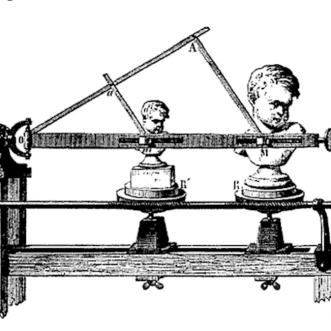November 15, 2022
The people you want to serve – the clients you’d like to have – don’t know what you know. They don’t believe what you believe. They look at the world through different eyes, a different experience and with a different mindset.
That’s what makes marketing hard. Especially if you are offering something different from the norm.
It’s the same for the people you work with. They don’t know what you know. They don’t believe what you believe. They bring their own experience and mindset to the way they see the world.
That’s what makes running a business – serving clients through other people – hard.
The difference is that the people you work have to do what you tell them, don’t they? After all, you’re paying them. They need a job.
Except that all too often what actually happens is that you spend more time on watching over them than on the business. Micro-managing. Because your unique definition of ‘customer experience‘ is entirely in your head. Which is frustrating for everyone, and constraining for the business.
So you delegate the micro-management to someone else. Who doesn’t know what you know, doesn’t necessarily believe what you believe. Who sees the world through different eyes, with a different mindset. Who tells your people what to do, based on what’s in their head. Sure it takes a load off your back, but will your unique customer experience survive the change?
I believe there is a better way. Which is to document the customer experience in your head and make it available for everyone in the business to follow.
Not ‘what to do‘, but ‘what has to happen‘.
Not ‘how to do it‘, but ‘how it needs to feel for the client‘.
Not just ‘this is how we do things round here’ but also ‘this is what we believe‘.
So that you are not just handing over the ‘donkey work’, but also the emotional labour of delivering the business’s unique customer experience – the part that really matters to the client, the part they pay extra for, the part they refer their friends to.
Then work out and document how that customer experience is maintained, how you make sure that everyone who works with you knows what you know and believes most of what you believe, so that you know you can trust them to use their own history and mindset to make that customer experience even better, in line with the beliefs you all share.
It’s quite a job to get all this in place*. But once you have it running and growing your business gets easier and easier. Because everyone working the business is standing in for you. Everyone’s a boss.
And not a manager in sight.
*That’s what I do. Talk to me.









